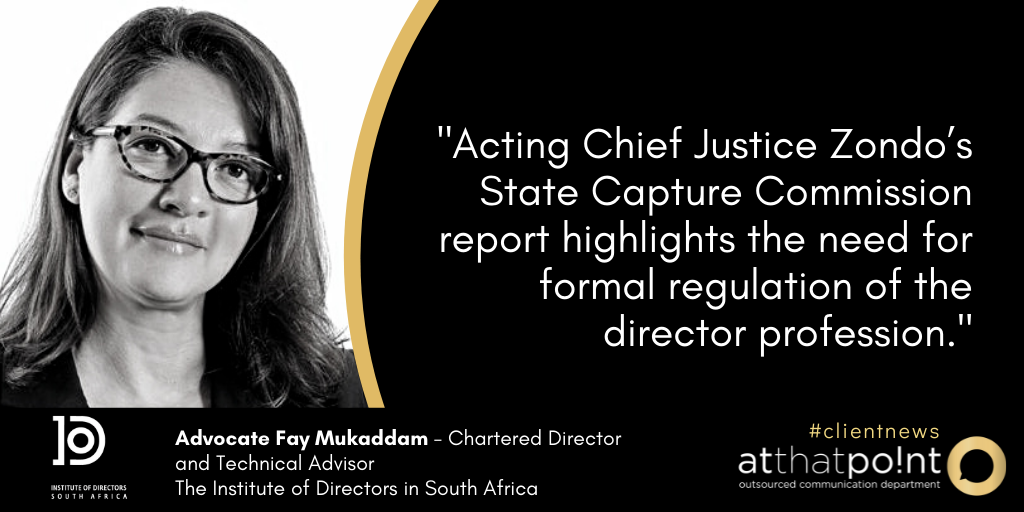 “Acting Chief Justice Zondo’s State Capture Commission report highlights the need for formal regulation of the director profession,” says Advocate Fay Mukaddam, Chartered Director (SA) and Governance Specialist at the Institute of Directors South Africa (IoDSA). As examples, Mukaddam points to the first volume’s allegations of gross mismanagement at SAA and its chairperson at the time eventually being declared a delinquent director by the courts. “While legal action can be taken to prohibit an incompetent or criminal director from serving on any boards in the future, this is effectively closing the stable door after the horse has bolted,” she says, insisting that early prevention is better than eventual punishment. A flawed system What stands out in the report is cadre deployment that saw people appointed to boards in SOEs and public sector entities because of their political connections rather than their fitness as directors. It is evident that they often did not understand or respect their mandate and either neglected or ignored their obligation to the organisation and the law. As a result, they allowed poor performance to infect the corporate culture they were meant to heal and led their organisation to ruin. This signals a flawed recruitment, screening, selection and appointment process and a lack of appreciation for what the roles and responsibilities of a director and board are. "If one doesn't understand what they are elected to do, how can they acquit themselves of their fiduciary duties?" asks Mukaddam. It also appears that, due to their questionable appointment, they were not subjected to the same performance interventions or rehabilitation processes as everyone else. The impact of poor directors SAA is a prime example of what happens when even a few poor directors are appointed to boards. Unfortunately, director acumen and commitment to their duties vary widely across organisations in both the public and private sectors, and low performance can go unnoticed until it is too late. “Professional directors as a collective have a significant impact on the economy, yet almost anyone can become a director without possessing the level of competency essential to their office,” says Mukaddam. The vetting process is largely left to the incumbent board or the vote of the organisation’s shareholders. Mukaddam suggests that this process is unsustainable, especially in developing countries like South Africa where robust policy is critical to economic recovery. A better approach “It is long past due that an independent regulator is empowered to accredit incoming directors against global professional standards, hold them accountable for misconduct, and formalise their continuous professional development on pain of being disqualified,” states Mukaddam. Other significant professionals, like doctors, auditors or attorneys, are required to pass a bar exam or professional evaluation before being allowed to practice. They are also subject to the disciplinary oversight of their professional body and must commit themselves to monitored lifelong learning. Yet none hold more sway over their nation’s prosperity than public and private professional directors. “A regulator, supported by government and the private sector, is far more effective than a long and difficult legal battle for a delinquency judgement after an organisation is already crippled,” says Mukaddam. ENDS MEDIA CONTACT: Idéle Prinsloo, 082 573 9219, [email protected], www.atthatpoint.co.za For more information on the IoDSA please visit: Website: www.iodsa.co.za Twitter: @The_IoDSA LinkedIn: Institute of Directors South Africa Company Page Facebook: Institute of Directors South Africa
0 Comments
Leave a Reply. |
Archives
July 2024
Categories
All
|

 RSS Feed
RSS Feed